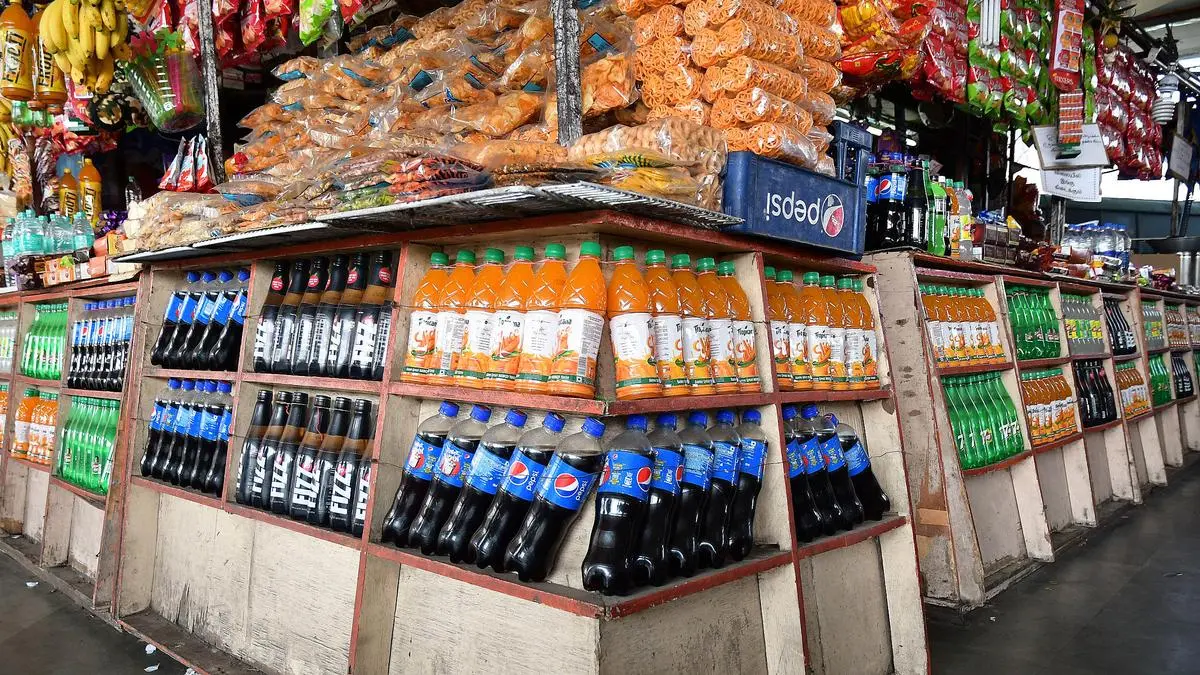By Prime Minister Modi
Copyright thehindubusinessline

The GST Council’s recent decision to raise tax rates on ultra-processed and sugar sweetened beverages (SSB) marks a decisive step in India’s battle against preventable lifestyle diseases. The GST rate has been raised from 28 per cent to 40 per cent on aerated waters containing sugar, fruit-based carbonated drinks, and caffeinated beverages; and 18 per cent to 40 per cent on other non-alcoholic beverages. Fiscal measures such as high taxes are not about “punishing choice” but about correcting a market imbalance where the true social costs of consumption are often hidden. By imposing “sin taxes” on sodas, iced teas, energy drinks, and similar products at the highest slab, the Government has sent a strong message: India’s health comes first.
Efforts to regulate industries with harmful social consequences are never easy. Debates around the Promotion and Regulation of Online Gaming Act, 2025— which cracked down on money-gaming platforms — illustrate this challenge. Critics complained about “nanny state” overreach, loss of jobs, and the risk of an underground economy, while ignoring or underplaying the counterfactual: the devastating toll of unregulated markets on public welfare, whether through addiction, financial exploitation, or ill-health.
The same logic applies to sugary drinks, which are aggressively marketed and easily accessible (especially to children), even as ample evidence mounts about their devastating health consequences. A 2019 study in The BMJ showed that consuming more than four servings per day of ultra-processed food (UPF) increased the risk of all-cause mortality by 62 per cent. A 2023 study in Lancet reported that SSB and processed meats contributed the most to risks for cancer and cardio-metabolic diseases. The addictive properties of sugar, coupled with heavy advertising, make SSB particularly insidious. Unlike natural foods, these products are designed for “bliss points” that maximise repeat consumption.
Increasing obesity
The costs — rising obesity, Type 2 diabetes, cardiovascular disease, early deaths — fall not on corporations, but on families and public health systems. India is being visibly devastated by increasing obesity and its serious health and economic consequences, especially in children and adolescents. The trend is higher among the lower socio-economic sections, who are least able to cope with the consequences. ICMR-NIN Dietary Guidelines (2024) reveal the enormity of the challenge: over 56 per cent of India’s disease burden is linked to unhealthy diets. Therefore, public health advocates have long championed the need for “sin taxes” on UPF (including SSB) which contribute little nutritionally but cause enormous harm. WHO, repeatedly emphasising that humans require no added sugar for nutrition, has observed that raising SSB prices by at least 20 per cent would proportionately reduce consumption.
The urgent need for action is reinforced by our consumption data. A recent PM Economic Advisory Council working paper analysing Household Consumption Expenditure Survey data, documented rising household spending on packaged processed foods across all income classes: for the bottom 20 per cent of rural households, expenditure share rose from 3.2 per cent (2011-12) to 5.5 per cent (2022-23); for bottom 20 per cent of urban areas: from 3.7 per cent to 6.4 per cent; for top 20 per cent rural households: from 4.7 per cent to 6.9 per cent; for top 20 per cent urban households: from 6.1 per cent to 8.2 per cent. This worrying diffusion of UPF into India’s dietary fabric imposes massive costs on family well-being, healthcare systems, and productivity.
The bold step taken by the GST Council aligns well with India’s nutrition and health strategies to counter this. Raising taxes is not a revenue measure, it is a public health intervention. Standing against predictable industry pushback, the Government has signalled that India values its citizens’ long-term health over the short-term profits of corporations, affirming its commitment to Swasth Bharat, repeatedly emphasised by Prime Minister Modi. It reinforces the ongoing emphasis on promoting healthier diets, encouraging production and consumption of wholesome foods like millets and other organic produce.
Sugar boards
Flagship programmes like Poshan 2.0, Pradhan Mantri Poshan Shakti Nirman (PM-POSHAN), and the Eat Right India campaign have been scaled up to expand access to nutritious food and build awareness around balanced eating. To ensure nutritional awareness among the most vulnerable age group, the National Commission for Protection of Child Rights recently mandated sugar boards: informational displays in cafeterias and other common spaces in all schools, aiming to educate students about the risks of excessive sugar intake, and suggest healthier alternatives. By consistently improving health literacy, making healthy options affordable, and discouraging the consumption of harmful UPF, India is shaping a healthier future.
In this backdrop, taxation is a powerful corrective, embedding the true social cost of SSB into their price to empower consumers to make healthier choices and nudge markets towards more responsible product innovation. However, more course correction is needed to tackle UPF in general, with emphasis on safer consumption of other nutrients of concern i.e., salt and fat, particularly in pre-packaged foods. Modi exhorting Indians to reduce cooking oil by 10 per cent is a welcome step. NAPi has been emphasising the need for stringent Front-of-Package Labelling (FOPL) nutrition warnings which surpass language barriers, and increased GST on foods high in fat, sugar and salt.
Tax correctives on foods are extremely difficult to implement, even in high income countries; in India the concerns over interfering with earnings of small-scale and cottage industries/ women/farmers make it an even more fraught task. However, this year’s Economic Survey has strongly recommended FOPL warnings, strengthening consumer protection efforts, tightening marketing regulations, and stronger curbs on misleading advertisements especially targeted at children.
International experience, from Chile to Mexico, has shown that taxation works best when combined with visible warnings and ongoing education. As part of multi-pronged efforts, this reform could mark the beginning of a generational shift in India’s dietary and health landscape.
Virmani is Director, Pediatric Endocrinology, Max Smart & Rainbow Children’s Hospitals, New Delhi; Harish is Member, Nutrition Advocacy in Public interest, and former Prof & Head of Paediatrics, Government Medical College, Jammu; and Avni is Asst. Media Advisor, Ministry of Finance, Govt of India
Published on September 19, 2025



